As healthcare staffing continues to evolve, it offers ambitious entrepreneurs opportunities to grow and expand. Many successful single-location staffing companies are trying to duplicate their success in new markets as the need for skilled healthcare workers increases in various geographic areas. This blog will provide tips on growing your home healthcare medical staffing business outside of its initial location.
Market Research and Location Analysis
Perform in-depth market research in potential locations before expanding. Assess the workforce’s availability, demographic trends, competition, and nearby healthcare facilities. Consider factors such as the quantity of healthcare facilities, existing staff gaps, and population aging rates. Finding attractive markets where your services will be most needed and profitable requires an understanding of the local healthcare environment. An examination of local salary rates, legal requirements, and possible collaborations with medical facilities should also be a component of this research.
Operational Infrastructure Development
For multi-location businesses to succeed, scalable solutions must be developed. Invest in reliable healthcare staffing software that can effectively manage several locations. Create uniform hiring, credentialing, scheduling, and quality control procedures that may be applied in different locations. Think about centralizing administrative tasks while keeping customer relationship management and hiring locally. For operations to run smoothly, it is crucial to comprehend NEMT business setup policies and other regulatory requirements in new markets.
Financial Planning and Resource Allocation
Significant resource management and financial planning are necessary for expansion. Determine the initial expenses for office space, personnel, marketing, and technology infrastructure at each new location. Develop thorough financial forecasts and set up success indicators. Think about a variety of funding choices, such as investor partnerships and conventional business loans. Throughout the early stages of expansion in new locations, keep working capital sufficient to fund payroll and operations.
Building Strong Local Teams
The development of competent local teams is crucial for success in new markets. Start by appointing experienced local managers who are aware of the unique market dynamics in the region as well as healthcare personnel. To guarantee uniformity in service quality across locations, invest in extensive training programs. Moreover, establish frequent performance assessment procedures and create clear lines of communication across locations to uphold high standards throughout your growing company.
Marketing and Brand Expansion
Create a marketing plan that meets the demands of the regional market while preserving brand consistency. Make marketing materials tailored to a particular location that demonstrates knowledge of the local healthcare communities. Establish connections with community organizations, professional associations, and nearby healthcare facilities. Use the beneficial relationships you made at your first location to facilitate introduction in other markets. To expand your reach while preserving a consistent brand image, use digital marketing techniques.
Bottom Line
It takes careful planning, reliable processes, and strategic execution to grow your home healthcare medical staffing business beyond one location. Success depends on preserving quality while adjusting to the demands of the regional market. You may create a successful multi-location business that efficiently serves healthcare professionals and facilities by adhering to these suggestions and staying dedicated to quality healthcare staffing. Keep in mind that achieving sustainable expansion requires striking a balance between ambition and meticulous implementation, making sure that every additional location enhances your company as a whole.
